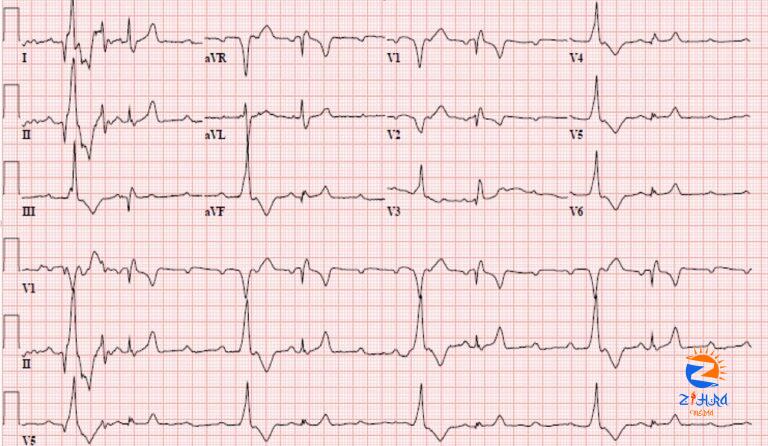
[ad_1]
A 52-year-old man is referred by his primary physician for an urgent consultation after being sent to the emergency department because of complete heart block. He was seen earlier in the day complaining of dizziness and fatigue. An electrocardiogram (ECG) performed in his primary physician’s office is shown below (Figure 1).
The patient reports that he had a syncopal episode last week while he was camping, but he thought it might have been caused by dehydration. He has been out camping with his son several times in the past 4 months. He does not recall any tick bites, but he does remember having a rash about 2 months ago that he attributed to contact with some poison ivy. His wife reports that it was an odd-looking rash, but it resolved without medical attention. Last month he experienced some joint pain, but assumed it was arthritis exacerbated by the cold weather. He began feeling dizzy and extremely fatigued yesterday, which limited his physical activity. This morning he nearly passed out while trying to get out of bed to go to the bathroom. He is currently asymptomatic, laying supine, with no complaints. His heart rate is 48 beats per minute and his blood pressure is 110/72 mm Hg.
Early laboratory testing in the emergency department revealed a mildly elevated white count. Serum creatinine was 1.0 mg/dL and the remainder of the complete metabolic panel was normal.
Figure 1.

Image courtesy of George Marzouka, MD, FACC
What is the next best step?
A. Contact an electrophysiologist for urgent pacemaker implantation
B. Place a transcutaneous pacemaker and initiate antibiotic therapy
C. Discharge the patient home with oral antibiotic therapy and corticosteroids
D. Admit the patient to the step-down unit and initiate intravenous ceftriazone
Click to the next page for answers.
This article originally appeared on Rheumatology Advisor
[ad_2]